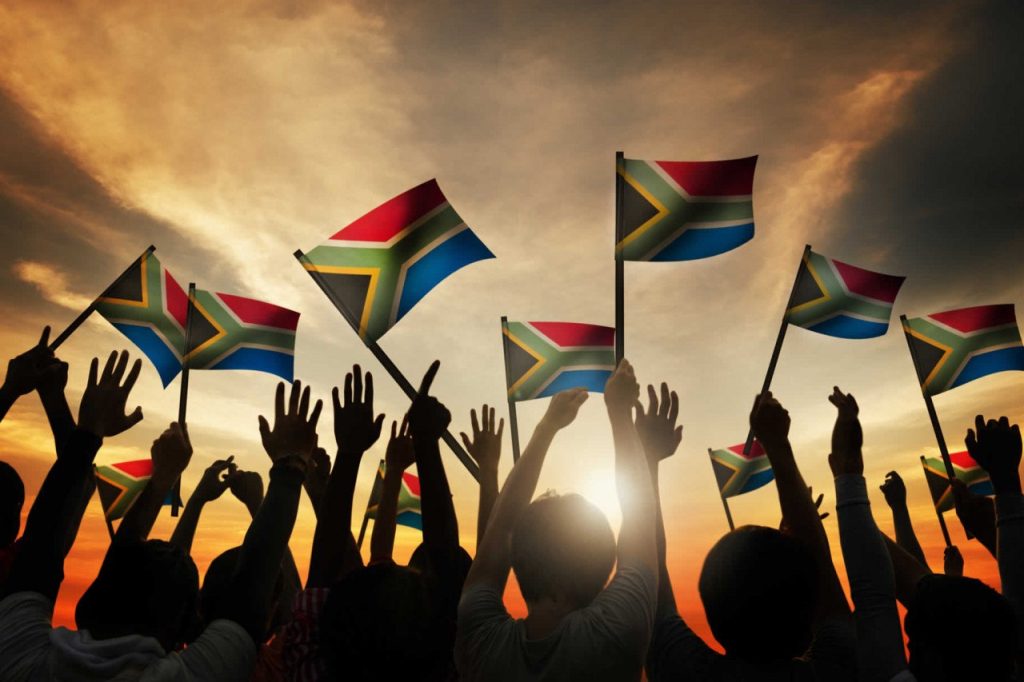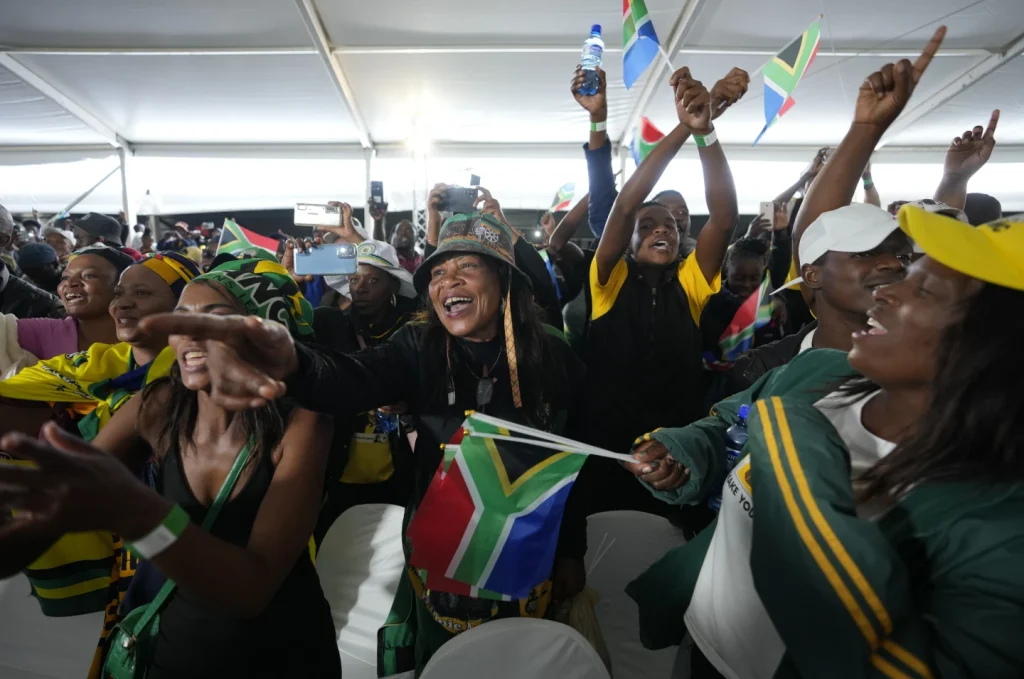The youths of South Africa appear to have turned out for the country’s general election in greater numbers than usual. Twenty one-year-old Enzokuhle Sabela volunteered as an election observer.
As a long day of voting wrapped up on Tuesday, Enzokuhle Sabela, 21, looked exhausted. As one of over 1000 election observers – many of them young people – he volunteered because he wanted to help ensure the much-contested 7th national elections in South Africa would be as fair as possible.
Exhausted he may have been but Sabela was also proud of the high voter turnout at his Durban voting station.
“It’s been a busy day… The turnout has been amazing. The IEC is running a good, modern operation aided by technology. With technology, there are bound to be hiccups, but the IEC team have handled them quite well,” he said, as voting wound up.
After a low voter turnout in 2019, civil society organisations and the Independent Electoral Commission (IEC) have put in concerted efforts to educate and encourage active participation in the country.
Organisations such as the GroundWork Collective have held youth-targeted activations to register voters, educate them on the role of local and national government, as well as facilitate selection of election observers.
Millions of South Africans went to the polls in nine provinces for national and provincial elections.
Observers like Sabela will share their feedback into a common app system. From sample data coming from observers at voting stations across the country, we will be able to evaluate feedback and pronounce broadly on the integrity of the elections.

Sabela became an election observer through GroundWork Collective because he wanted to see how the election process took place, the different processes in place and all the people involved.
‘With our democracy turning 30 years old, I saw it fitting to take part in this initiative and learn as much as I can,” said Sabela
The high voter turnout paired with the dwindling electronic system resulted in long queues in some stations well into the night. This made the role of observers more crucial.
Presiding officers at voting stations around the city did cite a delay in taking people in to vote in the morning due to the Voter Management System being offline.
In Addington primary, a presiding officer said “The system slows us down but we ensure people stay in their place in the queue so we take the next person as soon as it’s back online, it’s fine now we really struggled in the morning.”
Sabela hopes for more young South Africans to get involved democratic participation.
“Not just taking the voting process as a compulsory, tick box experiences every few years. I want to see my peers build their own legacy and take South Africa’s democracy to its next phase of life. The term ‘youth’ in South Africa is a serious term that must be taken seriously as well,” he said.
A non-profit human rights defence organisation, Defend Our Democracy (DOD), spearheaded the election observer Election Watch campaign.

DOD spokesperson Zaakirah Vadi said “the ordinary active citizen is given the opportunity to have oversight over the electoral process. The campaign was launched in November last year, defend our Democracy aimed to harness the collective footprint of grassroots organisations and individuals in various parts of the country.”
Observers cannot get involved in mediating issues within a voting station, but their presence is meant to be a deterrent to any form of electoral fraud or post-electoral disputes, according to DOD.
In their call to observers, DOD said observations will be shared into a common app system, and sample data will be evaluated to give feedback on the integrity of the elections.
Khanya Khumalo, 25, was an observer in Glenwood, one of the oldest neighbourhoods in Durban; she was inspired by the high numbers of young people who came out to vote.
“I became an election observer because I wanted to do something special on this day. To be a part of democracy and be part of change. It was a busy day and exciting at the same time. So far everything is smoothly running. I don’t have any complaints,” she said.
“I am hoping to have a president that will put South Africans first. Who will create job opportunities for youth and create a better South Africa for everyone,” Khumalo added.
Slwane Mthimkhuluan, 35 and an observer under GroundWork Collective, has been involved in party politics since he was in school. He was an observer at Adams Community Hall in rural Adams Mission. The station had many glitches –they opened late and couldn’t handle the queues.
However, Mthimkhuluan noted “the numbers were huge compared to the previous years, the waiting time has been about two to three hours and it’s getting late now but there is still a steady stream of voters,”
“My hope for our people is for equality, people in this community are living in abject poverty. The only way we can make a difference is to come out in numbers and vote,” said Mthimkhulu.
Despite being exhausted due to minimal breaks, Mthimkhulu said he enjoyed being an invigilator, making sure all processes were correct and fair.

IEC Chief Electoral Officer Sy Mamabolo addressed some concerns in a press briefing early Thursday morning, saying poor network connections resulted in the Voter Management Devices malfunctioning, causing delays.
Most polls started to close at 9 p.m. but thousands were still waiting in line after nightfall in some big city voting stations, with electoral officials vowing everyone would get their chance.
Observers left their stations when doors closed, in some stations they shut down at midnight or shortly after.
As the results begin to roll in for one of the most contested elections in the young democracy, the slogan of a young political party, Rise Mzansi seemed to best represent South African youth. “2024 is our 1994.”


